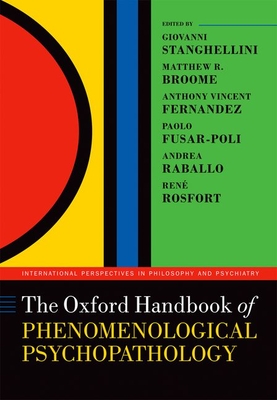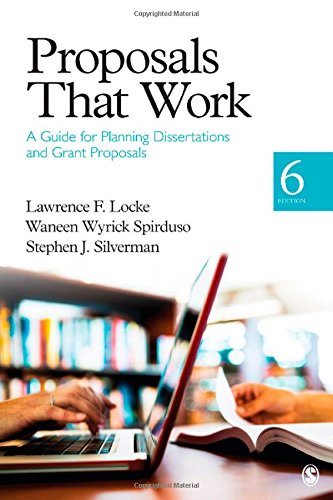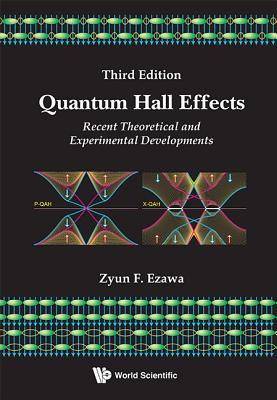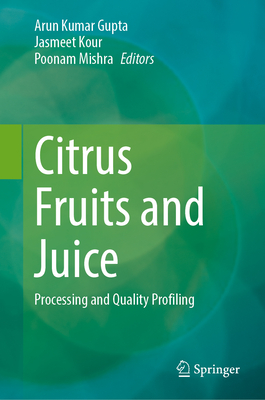图书简介
The field of phenomenological psychopathology (PP) is concerned with exploring and describing the individual experience of those suffering from mental disorders. The Oxford Handbook of Phenomenological Psychopathology is the first ever comprehensive review of the field.
1 Giovanni Stanghellini, Matthew Broome, Anthony Vincent Fernandez, Paolo Fusar Poli, Andrea Raballo, and Rene Rosfort: Introduction; Section One: History; 2 Roberta de Monticelli: Edmund Husserl; 3 Angela Ales Bello: The Role of Psychology According to Edith Stein; 4 Anthony Vincent Fernandez: Martin Heidegger; 5 Anthony Hatzimoysis: Jean-Paul Sartre; 6 Maxine Sheets-Johnstone: Merleau-Ponty, Phenomenology, and Psychopathology; 7 Shannon M. Mussett: Simone de Beauvoir; 8 John Cutting: Max Scheler; 9 Andrzej Wiercinski: Hans-Georg Gadamer; 10 Rene Rosfort: Paul Ricoeur; 11 Richard A. Cohen: Emmanuel Levinas; 12 Federico Leoni: Critiques and Integrations of Phenomenology: Derrida, Foucault, Deleuze; 13 Matthias Bormuth: Karl Jaspers; 14 Annick Urfer-Parnas: Eugene Minkowski; 15 Klaus Hoffmann and Roman Knorr: Ludwig Binswanger; 16 Franz Mayr: Medard Boss; 17 Thomas Fuchs: Erwin Straus; 18 Mario Rossi Monti: Ernst Kretschmer; 19 Stefano Micali: Hubertus Tellenbach; 20 James Phillips: Kimura Bin; 21 Martin Heinze: Wolfgang Blankenburg; 22 John Foot: Franco Basaglia; 23 Lewis R. Gordon: Frantz Fanon; 24 Allan Beveridge: R.D. Laing; Section Two: Foundations and Methods; 25 Shaun Gallagher: Phenomenology and cognitive science; 26 Massimiliano Aragona: Phenomenology, naturalism and the neurosciences; 27 Dermot Moran: The Phenomenological Approach; 28 Dorothee Legrand: Clinical Phenomenology: Descriptive, structural and transcendental; 29 Louis Sass and Adam Fishman: Introspection, Phenomenology, and Psychopathology; 30 Rene Rosfort: Phenomenology and Hermeneutics; 31 Sara Heinamaa and Joona Taipale: Normality; 32 Anthony Steinbock: Genetic Phenomenology; 33 Anthony Vincent Fernandez and Allan Koster: The Subject Matter of Phenomenological Psychopathology; Section Three: Key-concepts; 34 Dan Zahavi: Self; 35 Rene Rosfort: Emotion; 36 Roberta Lanfredini: The Unconscious in Phenomenology; 37 Joel Krueger: Intentionality; 38 Rene Rosfort: Personhood; 39 Francesca Brencio: Befindlichkeit: Disposition; 40 KWM (Bill) Fulford and Giovanni Stanghellini: Values and Values-based Practice; 41 Eric Matthews: Embodiment; 42 Katerina Deligiorgi: Autonomy; 43 Soren Overgaard and Mads Gram Henriksen: Alterity; 44 Federico Leoni: Time; 45 Marcin Moskalewicz: Conscience; 46 Christoph Hoerl: Understanding and Explaining; Section Four: Descriptive Psychopathology; 47 Femi Oyebode: Consciousness and its Disorders; 48 Thomas Fuchs: The Experience of Time and its Disorders; 49 Julian C. Hughes: Attention, Concentration, Memory, and their Disorders; 50 John Cutting: Thought, Speech and Language Disorders; 51 Kevin Aho: Affectivity and its Disorders; 52 Josef Parnas and Mads Gram Henriksen: Selfhood and its disorders; 53 Maria Ines Lopez-Ibor and Dra Julia Picazo Zapinno: Vital Anxiety; 54 Aaron Mishara and Yuliya Zaytseva: Hallucinations and Phenomenal Consciousness; 55 John Cutting: Bodily Experience and its Disorders; 56 Gabor S. Ungvari: The psychopathological concept of catatonia; 57 Giovanni Castellini and Valdo Ricca: Eating behavior and its disorders; 58 Matthew Ratcliffe: The Phenomenological Clarification of Grief and its Relevance for Psychiatry; 59 Giovanni Castellini and Milena Mancini: Gender Dysphoria; 60 Maria Luisa Figueira and Luis Madeira: Hysteria, dissociation, conversion and somatisation; 61 Claire Ahern, Daniel B. Fassnacht, and Michael Kyrios: Obsessions and phobias; 62 Clara S. Humpston: Thoughts without Thinkers: Agency, Ownership and the Paradox of Thought Insertion; Section Five: Life-worlds; 63 Louis Sass: The Life-World of Persons with Schizophrenia (considered as a Disorder of Basic Self); 64 Thomas Fuchs: The Life-World of Persons with Mood Disorders as Disorders of Temporality; 65 Martin Burgy: The Life-World of the Obsessive-Compulsive Person; 66 Guilherme Messas, Rafaela Zorzanelli, and Melissa Tamelini: The Life-World of Persons with Hysteria; 67 Giovanni Stanghellini and Milena Mancini: The Life-World of persons with borderline personality disorder; 68 G. Di Petta: The Life-World of Persons with Drug Addictions; 69 Francesco Barale, Davide Broglia, Giulia Zelda De Vidovich, and Stefania Ucelli di Nemi Translated by Martino Rossi Monti: The Life-World of Persons with Autism; Section Six: Clinical Psychopathology; 70 Lennart Jansson: First Rank Symptoms of Schizophrenia; 71 Arnaldo Ballerini: Schizophrenic Delusion; 72 Mads Gram Henriksen and Josef Parnas: Delusional mood; 73 Otto Doerr: Delusion and Mood Disorders; 74 Paolo Scudellari: Paranoia; 75 Matthew Ratcliffe: Auditory Verbal Hallucinations and their Phenomenological Context; 76 Andrea Raballo and Lorenzo Pelizza: Affective temperaments; 77 Richard Gipps and Sanneke de Haan: Schizophrenic Autism; 78 Mario Rossi Monti and Alessandra D’Agostino: Dysphoria in Borderline Persons; 79 Luis Madeira, Ilaria Bonoldi, and Barnaby Nelson: Psychosis High Risk states; 80 Gareth S. Owen: Psychopathology and Law; 81 Cristina Costa, Sergio Carmenates, Luis Madeira, and Giovanni Stanghellini: Atmospheres and the Clinical Encounter; 82 Jerome Englebert: The Psychopathology of Psychopaths; 83 Robert D. Stolorow: A Phenomenological-Contextual, Existential, and Ethical Perspective on Emotional Trauma; Section Seven: Phenomenological Psychopathology; 84 Georg Northoff: Phenomenological Psychopathology and Neuroscience; 85 Massimo Ballerini: Phenomenological Psychopathology and Qualitative Research; 86 Julie Nordgaard and Mads Gram Henriksen: Phenomenological Psychopathology and Quantitative Research; 87 Giovanni Stanghellini: Phenomenological Psychopathology and Psychotherapy; 88 Rene Rosfort: Phenomenological Psychopathology and Psychiatric Ethics; 89 Jake Jackson: Phenomenological Psychopathology and America’s Social Life-World; 90 Giovanni Stanghellini: Phenomenological Psychopathology and the Formation of Clinicians; 91 Anthony Vincent Fernandez: Phenomenological Psychopathology and Psychiatric Classification; 92 Eduardo Iacoponi and Harvey Wickham: Phenomenological Psychopathology and Clinical Decision Making; 93 Federico Leoni: Phenomenological Psychopathology and Psychoanalysis; 94 Anna Bortolan: Phenomenological Psychopathology and Autobiography; 95 Grant Gillett and Patrick Seniuk: Phenomenological Psychopathology, Neuroscience, Psychiatric Disorders and the Intentional Arc; 96 Marco O. Bertelli, Johan De Groef, and Elisa Rondini: The phenomenology of Neurodiversity; 97 Francesca Ferri and Vittorio Gallese: The Bodily Self in Schizophrenia: From Phenomenology to Neuroscience
Trade Policy 买家须知
- 关于产品:
- ● 正版保障:本网站隶属于中国国际图书贸易集团公司,确保所有图书都是100%正版。
- ● 环保纸张:进口图书大多使用的都是环保轻型张,颜色偏黄,重量比较轻。
- ● 毛边版:即书翻页的地方,故意做成了参差不齐的样子,一般为精装版,更具收藏价值。
关于退换货:- 由于预订产品的特殊性,采购订单正式发订后,买方不得无故取消全部或部分产品的订购。
- 由于进口图书的特殊性,发生以下情况的,请直接拒收货物,由快递返回:
- ● 外包装破损/发错货/少发货/图书外观破损/图书配件不全(例如:光盘等)
并请在工作日通过电话400-008-1110联系我们。
- 签收后,如发生以下情况,请在签收后的5个工作日内联系客服办理退换货:
- ● 缺页/错页/错印/脱线
关于发货时间:- 一般情况下:
- ●【现货】 下单后48小时内由北京(库房)发出快递。
- ●【预订】【预售】下单后国外发货,到货时间预计5-8周左右,店铺默认中通快递,如需顺丰快递邮费到付。
- ● 需要开具发票的客户,发货时间可能在上述基础上再延后1-2个工作日(紧急发票需求,请联系010-68433105/3213);
- ● 如遇其他特殊原因,对发货时间有影响的,我们会第一时间在网站公告,敬请留意。
关于到货时间:- 由于进口图书入境入库后,都是委托第三方快递发货,所以我们只能保证在规定时间内发出,但无法为您保证确切的到货时间。
- ● 主要城市一般2-4天
- ● 偏远地区一般4-7天
关于接听咨询电话的时间:- 010-68433105/3213正常接听咨询电话的时间为:周一至周五上午8:30~下午5:00,周六、日及法定节假日休息,将无法接听来电,敬请谅解。
- 其它时间您也可以通过邮件联系我们:customer@readgo.cn,工作日会优先处理。
关于快递:- ● 已付款订单:主要由中通、宅急送负责派送,订单进度查询请拨打010-68433105/3213。
本书暂无推荐
本书暂无推荐















